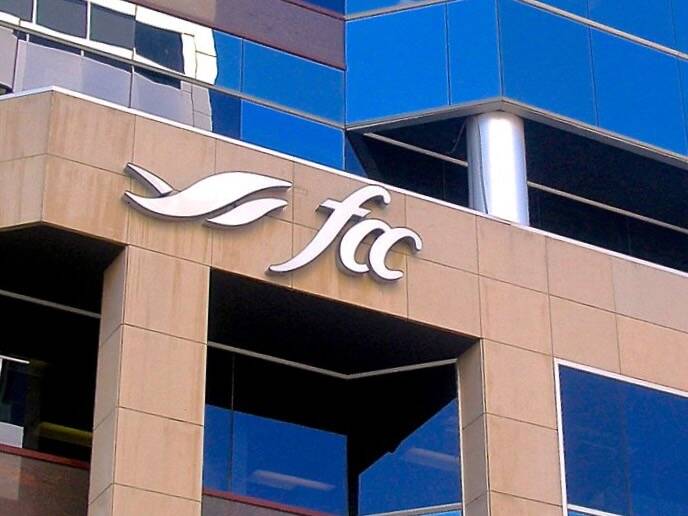The Mani toba Canol a Growers Association (MCGA) has a new set of bylaws, including one that limits how many consecutive terms a director can serve.
Most of the more than 200 MCGA members attending a special meeting here March 1, during the MCGA’s annual meeting, voted to adopt the bylaws.
The MCGA’s eight board of directors had already unanimously approved them.
Under the new bylaws, directors must step down after serving a maximum of three consecutive, four-year terms, but can run again two years later.
Read Also

Farm Credit Canada forecasts higher farm costs for 2026
Canadian farmers should brace for higher costs in 2026, Farm Credit Canada warns, although there’s some bright financial news for cattle
A sitting director can be fired if at least two-thirds of the board passes a resolution stating he or she has failed to follow bylaws pertaining to their duties as a director or rules around conflicts of interest and confidentiality.
MCGA members are defined as “each person engaged in the business of producing and marketing canola in Manitoba and who has paid fees to the association on all canola marketed… in the previous fiscal year.”
The bylaws set out the rules for MCGA elections, including a preferential ballot.
MCGA president Rob Pettinger said the new bylaws reflect member wishes.
“Rather than patching up old rules we decided on building a comprehensive set of new bylaws,” he said. “The bylaws are consistent with the requirements of the corporations act, whereas our (old) bylaws have some inconsistencies with the act.”
SIMILAR
The MCGA’s new bylaws are similar to those of many Manitoba farm organizations, including the supply-managed marketing boards and the Keystone Agricultural Producers, Pettinger said.
In an interview Pettinger said it wasn’t easy dealing with term limits because it affects sitting directors. Bruce Dalgarno of Newdale won’t be able to run in this year’s MCGA election, nor will Dauphinarea director Ernie Sirski in 2013.
St. Francois Xavier farmer Ed Hiebert asked Pettinger, who chaired the special and annual meetings several times, why the new bylaws did not include previously passed MCGA resolutions, including one calling on the MCGA to post resolutions on its website within a certain period of time.
“Those (resolutions) have become part of the operations of the corporation,” Pettinger said. “We did it this past year and we will continue to do it because it’s good practice.”
Later MCGA lawyer Tom Dooley explained the MCGA’s bylaws provide the “nuts and bolts” of how the organization is governed.
“They are not intended to be a universal guide to govern every aspect of what your organization may do,” he said.
That way the organization has some flexibility in its operations. Dooley said he’ll draw up rules about how the new bylaws can be amended. It’s customary that members are notified well in advance of a proposed bylaw change and that any amendment be endorsed by a strong majority of members in attendance.
Hiebert has long charged the MCGA should be more democratic. His exchanges with Pettinger during the meetings were often testy.
TIME CONSTRAINT
Some members felt the discussion was too rushed. The event started at 9 a.m. with a speaker on adjusting combines. The MCGA’s annual meeting started at 10:30 a.m. It and the special bylaws meeting were scheduled to conclude at noon, to be followed by lunch and a combine clinic at 1 p.m.
“I don’t want to feel rushed on account of the way this organization has presented the agenda today,” said Deleau-area farmer Ian Robson. “We need to take the time to understand exactly the business that we are doing here.”
MacGregor-area farmer Curtis Sims commended the MCGA’s board for revamping its bylaws, but was critical of some of them, including one that allows tied votes on board resolutions.
“They are a recipe for stalemate and you can’t have a stalemate,” he said.
Sims also said incorporated and partnership farms should not be limited to one MCGA election ballot.
“It’s almost marginally sexist,” he said. “In a lot of farms the wife is a real significant partner. This is an area we need to improve.”
As the special meeting wound up Hiebert complained he was muzzled despite assurances he wouldn’t be restrained. However, he later praised the MCGA for boosting attendance with the combine clinic, but said it should have been held before or after the special and annual meetings. It was unfortunate so many farmers mainly interested in the combine clinic had to sit through a meeting they weren’t interested in, he said.
Hiebert also said he’s pleased it’s on the record that the MCGA’s board accepts the resolutions passed at previous meetings still stand, including one specifying how ballots are counted in MCGA elections.
However, he also complained some of the bylaws are too vague and open to interpretation.
“This organization is significantly more solidly democratic than it was before, but there are clearly all kinds of things this board is running roughshod with,” he said.
“You cure the evils of democracy with more democracy.” [email protected]
———
“Ratherthanpatchingupoldruleswedecidedon buildingacomprehensivesetofnewbylaws.”
– ROB PETTINGER














